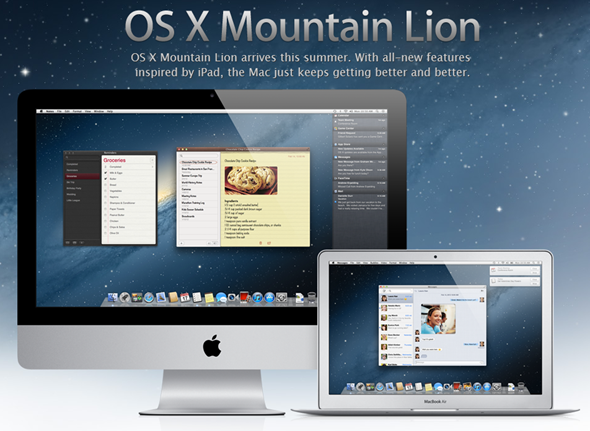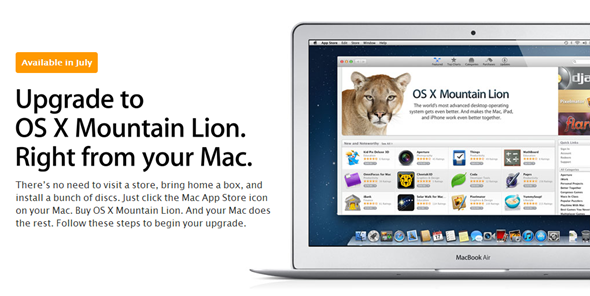Although most of the details with regards to Apple’s much anticipated OS X Mountain Lion are already public domain, the Cupertino company has now revealed which specific Macs will be upgradable once the next iteration of its desktop operating system does emerge. If you’re in ownership of a MacBook released prior to 2007, you’ll be disappointed to learn that you’ll need to grab yourself some new hardware if you wish to sink your teeth into Mountain Lion, since it’s thought it will simply not run on 32-bit GPUs.
As such, if you’re a Mac Mini user and purchased your little computing box before 2009, you will also need to consider investing in a newer unit if you want to run the heavily iOS-influenced iteration of OS X.

Last year’s release of OS X Lion saw many old favorites left behind, and Mountain Lion will follow a similar pattern. With each iteration of OS X there’s always a list of machines that have been left behind, and Mountain Lion is no different, it would seem. Apple hasn’t stated any specific reasons as to why certain models have been left out of contention, but presumption seems to be that graphics on 64-bit systems are the main source of the problem.
The Golden Master seed of Mountain Lion, which dropped earlier this week, indicates the older machines depend on specific 32-bit GPU drivers, and it appears as though Apple has decided to leave the older devices out as opposed to going through the painstaking rigmarole of writing new drivers for each one.
Apple will obviously continue to support the older machines with security patches and performance enhancements, but from an OS X point of view, Mountain Lion is simply a step too far.

Here is the fully classified list of devices compliant with Mountain Lion, which will be arriving later this month for the upgrade price of $19.99.
- iMac (Mid 2007 or newer)
- MacBook (Late 2008 Aluminum, or Early 2009 or newer)
- MacBook Pro (Mid/Late 2007 or newer)
- MacBook Air (Late 2008 or newer)
- Mac mini (Early 2009 or newer)
- Mac Pro (Early 2008 or newer)
- Xserve (Early 2009)
Although it’s always a shame to see older machines left out in the cold, I do believe there comes a time when, for one reason or another, a machine of a certain age becomes too costly to continue supporting.
You can follow us on Twitter, add us to your circle on Google+ or like our Facebook page to keep yourself updated on all the latest from Microsoft, Google, Apple and the web.

